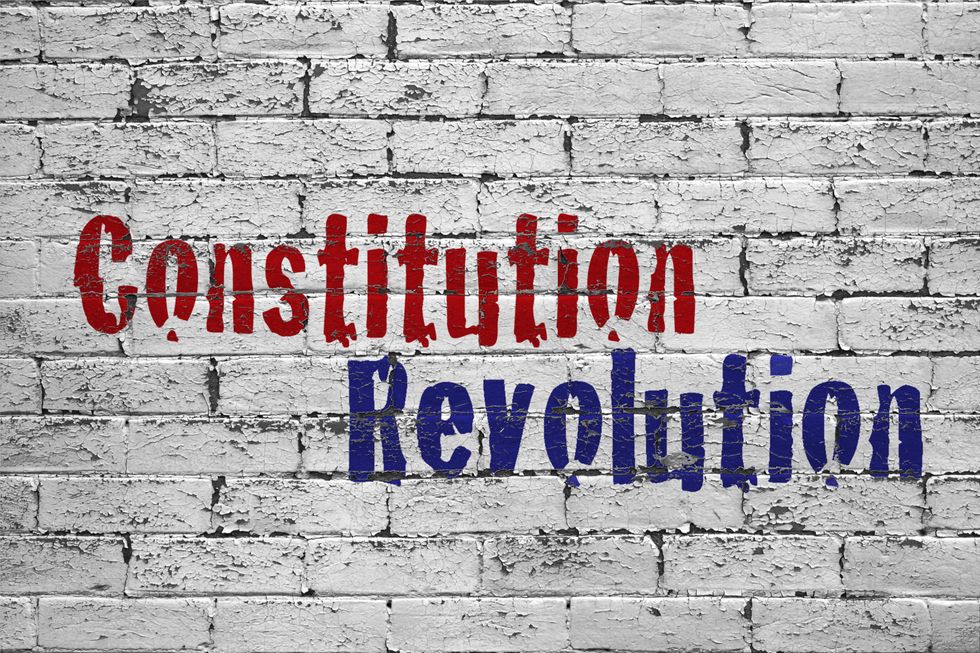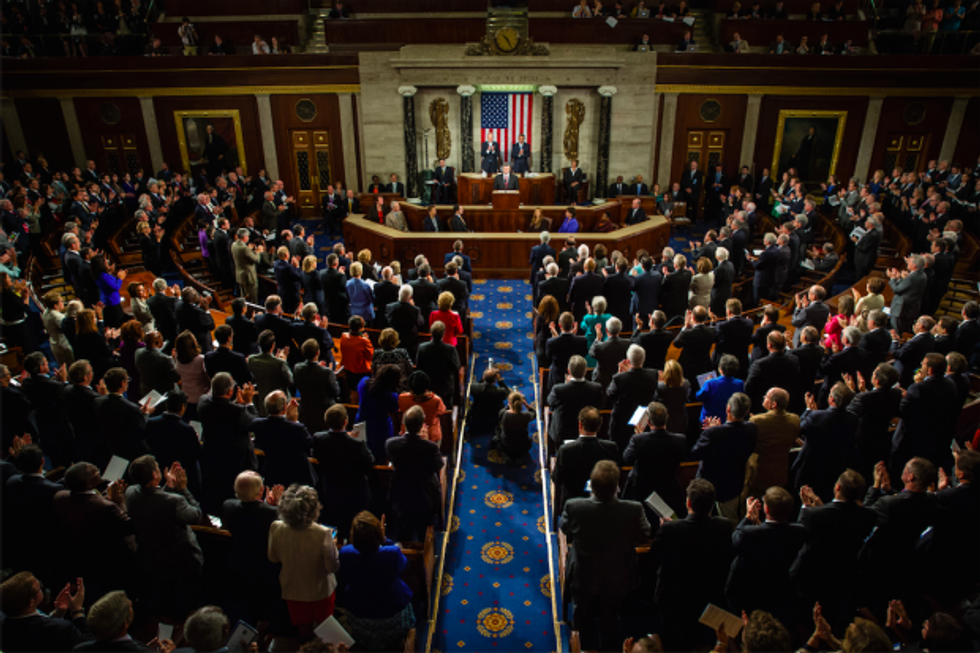
Photo Courtesy of Author.

This post is the continuation of a weekly Constitution Revolution series for TheBlaze.com and TheBlaze Radio’s Chris Salcedo Show. To see last week’s lesson, click here.
This post has been updated.
–
It’s time in our journey through the Constitution to look at one of the most abused and distorted clauses in the entire document: the General Welfare Clause. Over the years, we’ve managed to get to the point where our courts now read this clause to mean the complete opposite of what was intended.
That re-invention of the General Welfare Clause has been pivotal in allowing the federal government to grow to the enormous size it’s at today. So pivotal in fact, that if we could just convince the courts to apply this one clause as intended, that alone might be enough to get our system to work properly again.
To see why, let’s start by taking a look at the text of the clause itself in Article 1, Section 8:
“The Congress shall have Power To lay and collect Taxes, Duties, Imposts and Excises, to pay the Debts and provide for the common Defence and general Welfare of the United States.”
Today, the conventional wisdom is that this clause means that Congress can spend money for any public purpose it wants—and that this spending power is not limited by the enumeration of powers that comes later in Article 1, Section 8. The Supreme Court made that exact claim in its majority decision in U.S. v Butler (1936).

But that interpretation is complete nonsense. To see that, let’s go back and take a look at what the size and scope of our federal government was intended to be.
During the Philadephia Convention, influential Founder Roger Sherman characterized the purpose of the federal government this way:
“The objects of the Union... were few - first, defence against foreign danger; second, against internal disputes and a resort to force; thirdly, treaties with foreign nations; fourthly, regulating foreign commerce, and drawing revenue from it... All other matters, civil and criminal, would be much better in the hands of the states.”
Another leading founder, James Iredell, expressed a similar point of view in North Carolina’s ratifying convention:
“The general government will have the protection and management of the general interests of the United States. The local and particular interests of the different states are left to their respective legislatures. All affairs which concern this state only are to be determined by our representatives coming from all parts of the state; all affairs which concern the Union at large are to be determined by representatives coming from all parts of the Union.”
These two statements are a pretty good representation of the beliefs of a lot of the people who wrote and ratified our Constitution.
Now let’s use a little common sense.
The Founders intended the federal government to be limited to dealing with issues that affected the entire country as a whole—as Roger Sherman said, issues like defense, foreign diplomacy, etc. All other issues were to be left exclusively to the state and local governments.
Given that, is it realistic to believe that the Framers honestly intended to give the federal government the power to spend money on any state or local issue it wanted? That’s simply not possible.
It would be hard enough to believe they intentionally granted that power to Congress if its only consequence was that the federal government would be able allocate some taxpayer money to state and local issues. But as we all know, when it comes to government the power to spend money on an issue is also the power to control an issue.

And that’s exactly what the federal government has done. It has used this power to spend money as a way to coerce state and local governments to do exactly what our politicians in Washington, D.C. want them to do.
In his book “Constitutional Law for Enlightened Citizens,” Michael Farris gives a great description of exactly how that happens:
“[The federal government] takes money from the taxpayers and gives a portion back to state and local governments, with a caveat that the state and local governments must adopt laws and policies that meet federal standards. This allows the federal government to accomplish indirectly what it cannot do directly.”
Again, there is simply no way the Framers intended to give the federal government the power to manipulate state and local governments in this way. That would completely undermine one of their primary goals in writing the Constitution: to create a federal government of limited powers.
This clause simply acknowledges that Congress has the power to provide for the generalwelfare of the entire country—think “common welfare” or “mutual” welfare. In other words, Congress only has the authority to spend money on issues that affect all of the states when they come together as one country.
To get a better feel for what is meant by general welfare, go back to the quote above from James Iredell and notice how he refers to the federal government as a “general government” that would handle the “general interest of the United States.”
By granting a power to provide for the general welfare, the Constitution necessarily excludes Congress from having the power to provide for the specificwelfare of individual states, individual regions of the country, or individual groups of people. Those areas were left exclusively for state and local governments to handle.
If we are going to have any realistic chance of reigning in our out of control federal government, we absolutely have to do something about the way that the General Welfare Clause is abused. Otherwise, any time we try to put a limit on the power of the federal government, our politicians in Washington, D.C. will just undermine those limits using the spending power.
You cannot have a limited federal government that also has the power to spend money on all public purposes—whether they are local, state or federal. That just isn’t possible.
Chad Kent is an author and speaker with a unique style that makes the Constitution simple and fun. Listen to Chad every Saturday during The Chris Salcedo Show on TheBlaze Radio, visit his web site at www.ChadKentSpeaks.com, and like his Facebook page at www.facebook.com/theconstitutionguy.
Feature Image Courtesy of Author
–
TheBlaze contributor channel supports an open discourse on a range of views. The opinions expressed in this channel are solely those of each individual author.